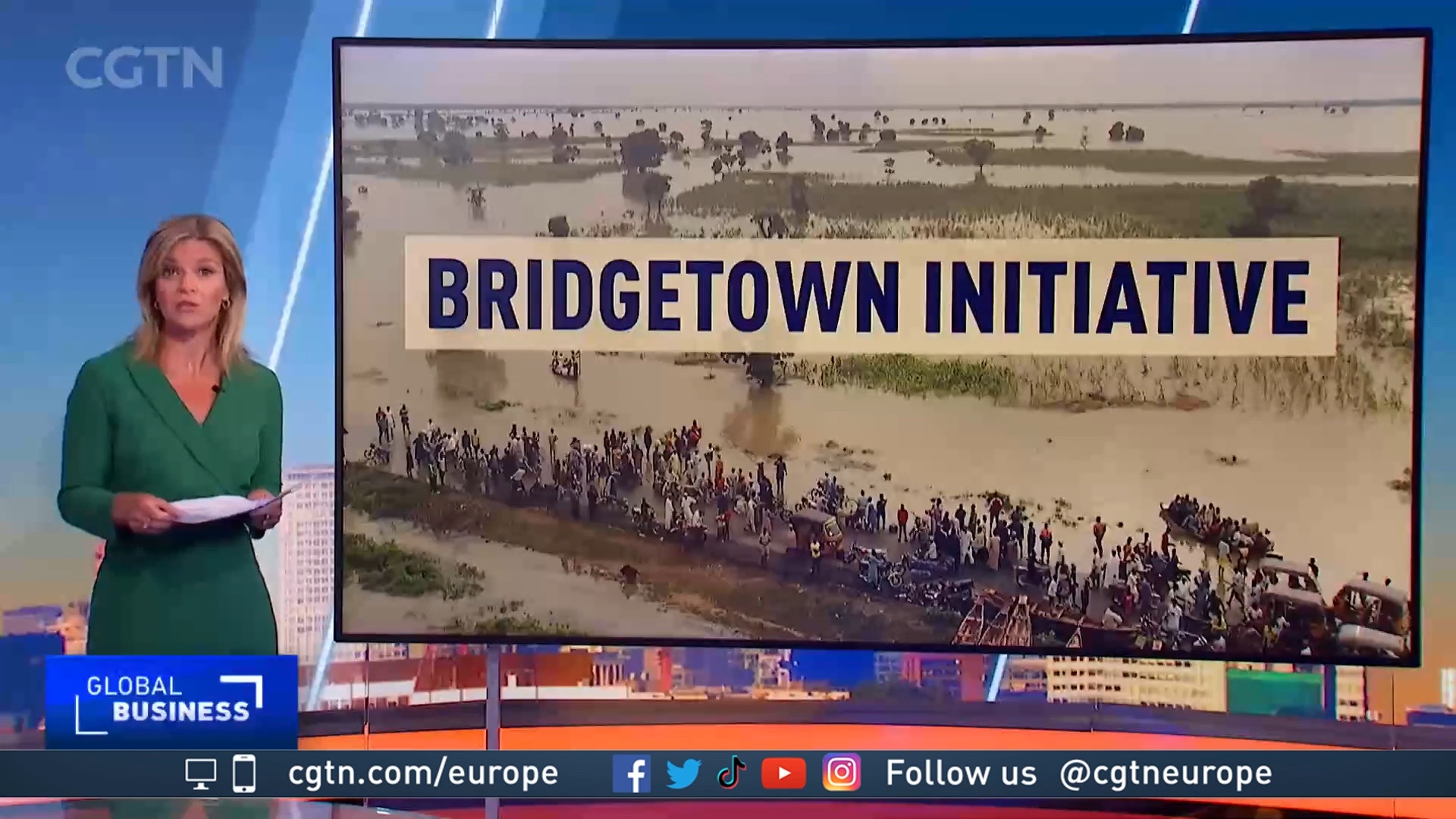04:12

France's president Emmanuel Macron is hosting the New Global Financial Pact Summit in Paris to discuss reform of the world's multilateral finance institutions in the face of climate change and other development challenges.
A key topic of discussion will be the 'Bridgetown Initiative' package of suggestions from a group of developing countries, led by Barbados (whose capital is Bridgetown) under the figurehead of its prime minister Mia Mottley.
The Bridgetown Initiative is essentially a three-step proposal seeking to transform the current global financial system by encouraging investment from the private sector to unlock climate cash for developing countries.
READ MORE
UK: Russia 'training dolphins for warfare'
Türkiye rates rise fails to inspire markets
Ukrainian football star makes new life in Hungary
The first step calls for an overhaul of multilateral development banks, which lend money to developing nations, to get more cash to countries in need. The second step wants increased lending to help developing nations build climate resilience, and the third step proposes a Global Climate Mitigation Trust to accelerate investments from the private sector.
Let's look at some of the key points of the Bridgetown Initiative's suggestions in more detail:
Liquidity support
• UN member states should fast-track the transfer of $100 billion in so-called 'Special Drawing Rights,' a monetary reserve currency, to programmes that support climate resilience and subsidize lending to low-income countries.
• The International Monetary Fund should suspend surcharges – additional interest payments imposed on heavily indebted borrowing countries – for two to three years.
Debt sustainability
• G20 creditor countries should redesign their Common Framework for restructuring the debt of poor countries in default, notably by speeding up debt relief talks and allowing middle-income countries to access it.
• The IMF should encourage the restructuring of unsustainable debt in a way that is consistent across countries, and change the way it analyzes the debt to incentivize investments that create future savings, such as those for climate adaptation.

Barbados PM Mia Mottley is leading the initiative. /Reuters
Barbados PM Mia Mottley is leading the initiative. /Reuters
• Public and private creditors should include disaster clauses in lending deals to allow countries to divert debt payments to disaster relief, and refinance high-interest and short-term debt with credit guarantees and longer maturities.
Private capital and lending
• The IMF and multilateral development banks should offer $100 billion a year in currency risk guarantees to drive private sector investment in projects that would help developing countries make the transition to a low-carbon economy. They should also expand their support to countries to help them create a pipeline of investable projects, and make greater use of blended finance and other structures where public lenders take on more project risk.
• The G20 and other shareholders of the World Bank, IMF and development institutions should commit an extra $100 billion a year in fresh capital to the various institutions and increase the leverage of the World Bank's International Development Association, which provides concessional finance, by scaling up its funding to $279 billion.

U.S. Treasury Secretary Janet Yellen listens to Kristalina Georgieva, Managing Director of the International Monetary Fund, at the New Global Financial Pact Summit. /Lewis Joly/Pool via Reuters
U.S. Treasury Secretary Janet Yellen listens to Kristalina Georgieva, Managing Director of the International Monetary Fund, at the New Global Financial Pact Summit. /Lewis Joly/Pool via Reuters
• The G20 should assess funding eligibility in light of a country's vulnerability and provide low-cost, 50-year loans to help them invest in areas including climate resilience, water security, pandemic preparedness and access to renewable energy.
• They should simplify and harmonize the way countries can apply to access loans across the world. The international financial institutions should also finance development plans that help protect shared resources.
Trading and Governance
• Groups such as the World Trade Organization and other major trading partners should work with governments to strengthen supply chains to make them more resilient, ensure they benefit countries that produce raw materials and protect the vulnerable.
• The governmental shareholders of International Financial Institutions should change the way they are structured and run to make them more "inclusive and equitable."
Subscribe to Storyboard: A weekly newsletter bringing you the best of CGTN every Friday
Source(s): Reuters